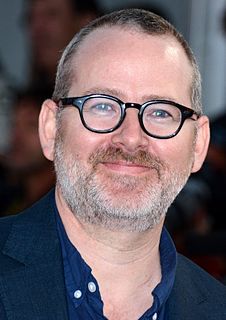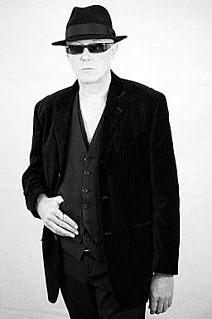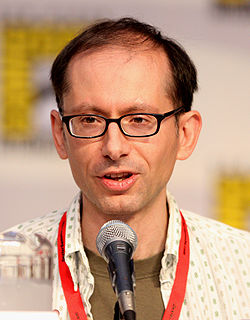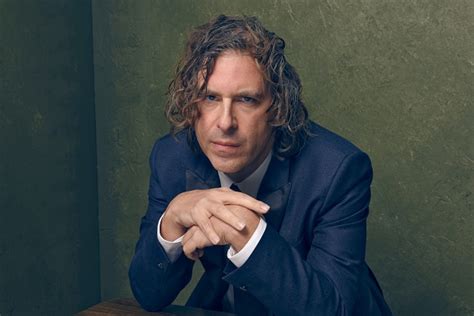A Quote by Morgan Neville
Non-fiction or documentaries can tell any kind of a story because they don't have to adhere to the rules of what's possible. When you're making something up, you have to say, 'Well, this is what would happen here,' but in reality, stuff happens that seems impossible.
Related Quotes
One day I decided to move towards documentaries or to move to more directing in documentaries at this point in my career. Why documentaries? I also love fiction. I would love to direct a fiction movie as well. But I think where I come from, reality is so interesting and has in it so many good stories to tell, this is why I'm doing that. I'm enjoying that.
A story is a way to say something that can't be said any other way, and it takes every word in the story to say what the meaning is. You tell a story because a statement would be inadequate. When anybody asks what a story is about, the only proper thing is to tell them to read the story. The meaning of fiction is not abstract meaning but experienced meaning.
When you start out on a career in the arts you have no idea what you are doing. This is great. People who know what they are doing know the rules, and know what is possible and impossible. You do not. And you should not. The rules on what is possible and impossible in the arts were made by people who had not tested the bounds of the possible by going beyond them. And you can. If you don't know it's impossible it's easier to do. And because nobody's done it before, they haven't made up rules to stop anyone doing that again, yet.
Horror fiction seems to spawn more dumbass 'rules' than any other kind of writing, and one of the dumbest is the assumed 'requirement' of a twist ending, going all the way back to H.H. Munro. This story is also the result of a long rumination on how stories are sometimes scuttled or diminished by succumbing to such 'rules'.
One of the things that I was kind of holding on to from 'The Daily Show' was there was an exhaustion that I would feel because we just kind of got caught up in the news cycle. You tell a story, and that's an interesting story, and then the next day we have to drop it and talk about something else. That's so unfair to the story and the people.
People say it's not what happens in your life that matters, it's what you think happened. But this qualification, obviously, did not go far enough. It was quite possible that the central event of your life could be something that didn't happen, or something you thought didn't happen. Otherwise there'd be no need for fiction, there'd only be memoirs and histories.
Obviously, in marketing, the best tool is to show the autobiography in fiction. It's inevitable how that happens, but it's generic. Say I've written a story where my sister dies. 'Well, did your sister die?' No, she did not. But people use those straws to grasp at the difference between reality and fiction.
I would say that Futurama: Bender's Big Score requires a lot of concentration to watch. It's a very complicated time-travel story. Part of the joke on that was just that the complexity would be over the top. This one is a more straight-forward science-fiction story, I would say. Alien invasion and people running in terror, that kind of thing, with a slight twist of there being an inappropriate physical relationship with the big octopus monster. We've got a straight-up science-fiction movie.
With a novel, you have the reader with you a lot longer, and you owe him a lot more. Obviously you have to have a plot - I say "obviously," although I think a lot of fiction doesn't, and nothing seems to happen. But to me, there should be something that happens, and it should be at least vaguely plausible. And because the readers are going to be with these characters for a long time, you have to get to know them and like them and want to know what happens to them.
I get up in front of a bunch of kids and say 'Hey, I'm gonna tell you a new story. Who wants to be in a new story?' Well some kid always sticks up their hand and that gives me a name, but it doesn't give me a story. I just say whatever comes to my mind and usually it's not that good. Every once in a while, however, I say something that turns into a really good story.



































